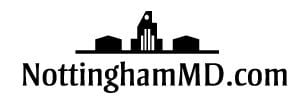BALTIMORE, MD—On August 24, 2022, the White House announced a Student Debt Relief Plan that includes one-time student loan debt relief targeted to low- and middle-income families. The U.S. Department of Education) will provide up to $20,000 in debt relief to Federal Pell Grant recipients and up to $10,000 in debt relief to non-Pell Grant recipients. Borrowers with loans held by the U.S. Department of Education are eligible for this relief if their individual income is less than $125,000 (or $250,000 for households).
Student Loan Borrowers should be aware that whenever a new government relief program is announced, there will be scammers seeking to exploit it. Borrowers will be targeted by scammers claiming that they can provide assistance in obtaining relief for them. Remember, any government programs that offer student loan debt relief through the U.S. Department of Education are always offered free of charge. Here are some actions that borrowers can take to protect themselves against scams likely to emerge in the wake of the President’s announcement:
- Do not trust unsolicited offers for assistance or a U.S. Department of Education seal or logo. Scammers often use official-looking names, seals, and logos in their communications. They will lie and promise special access to repayment plans, new federal loan consolidations, or loan forgiveness programs. If someone claiming to be with your student loan servicer contacts you by phone, collect their name and number, then hang up and call your loan company directly to verify the caller’s authenticity. Additionally, if you have federal loans, you can go to the U.S. Department of Education directly at https://www.StudentAid.gov for trusted information.
- Do not share your FSA ID outside of the U.S. Department of Education. Your FSA ID is considered a legal signature by the U.S. Department of Education for use in its online systems. Only you should have access to your number. Scammers may claim they need your FSA ID to help you, but do not divulge it to anyone, as it could be used to access your student loan account and steal your identity.
- Do not pay an up-front fee. It’s illegal for companies to require payment before they provide assistance. If you pay in advance, you might not receive the service that was promised – or your money back.
- Do not sign up for “quick” loan forgiveness. Scammers may offer you immediate loan forgiveness, or they may promise you loan forgiveness through a program that most borrowers won’t qualify for. They might also say they’ll “dispute” your loans to obtain loan forgiveness. No one can qualify you for a forgiveness program that you are not eligible for, nor can they eliminate your loans.
- Do not be rushed into making a decision. Take your time and do your due diligence. In order to get you to act quickly and without thinking, scammers will imply that you could miss out on an opportunity for repayment plans, loan consolidation, or loan forgiveness programs if you don’t sign up right away
The U.S. Department of Education, Office of Federal Student Aid has information for students, borrowers, and parents on the Student Debt Relief Plan. The Federal Student Debt Relief application is available online here.
For information about your rights as a student loan borrower in Maryland, see the Maryland Student Loan Borrower’s Bill of Rights, available for download here.
Additional student loan borrower resources are available on the Office of the Commissioner of Financial Regulation’s website.
Maryland residents with questions about student loan payments or concerns about their student loan servicer may contact the Maryland Student Loan Ombudsman by phone at 410-230-6185, or use the consumer complaint form.
Photo via Pixabay

